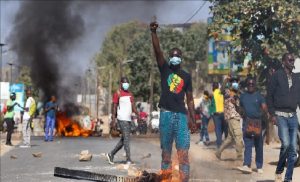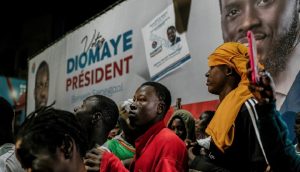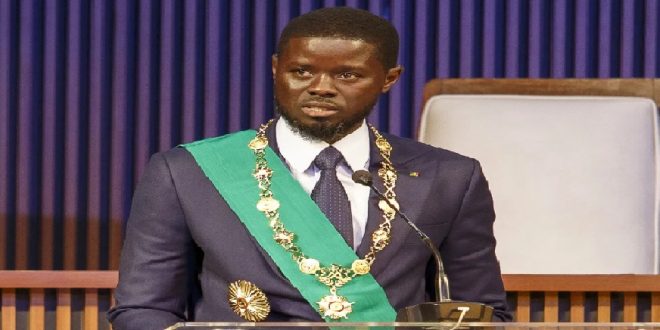14-09-2024
DAKAR: Senegal President Bassirou Diomaye Faye on Thursday dissolved the opposition-led national assembly, clearing the way for early legislative elections on Nov. 17.
In an evening address, Faye, who came to power in April, said working with the assembly had grown difficult after members refused to start discussions on the budget law and rejected efforts to dissolve wasteful state institutions.
 “I dissolve the national assembly to ask the sovereign people for the institutional means to bring about the systemic transformation that I have promised to deliver,” Faye said in his brief speech, in which he announced the date for voting.
“I dissolve the national assembly to ask the sovereign people for the institutional means to bring about the systemic transformation that I have promised to deliver,” Faye said in his brief speech, in which he announced the date for voting.
Thursday marked the two-year anniversary of the parliament, the minimum time that must elapse before a new legislative election.
Thursday’s move followed earlier promises by firebrand Prime Minister Ousmane Sonko to dissolve the national assembly and launch a wide-ranging probe into government corruption.
Faye defeated the ruling coalition candidate in a landslide victory in March, promising to crack down on corruption and introduce economic reforms that prioritize the national interest. Senegal’s new government last month set up a commission to review all oil and gas contracts. Sonko has promised to rebalance them in the national interest, without providing details on how long the review will take.
Senegal became a new oil producer in June after Australia’s Woodside Energy (WDS.AX), opens new tab announced that its Sangomar oil and gas field had produced its first oil.
Gas production is also due to begin by the end of the year at the Greater Tortue Ahmeyim liquefied natural gas project, operated by BP (BP.L), opens new tab.
Senegal remains one of the most stable countries in Africa. The three political alternations since independence in 1960 have been peaceful. In 2024, the country elected its fifth president in an election initially scheduled for  February 25, but postponed to March 24. Bassirou Diomaye Faye, the opposition candidate, won the first round with a majority of votes. The new government must now navigate without a majority in parliament, which by law cannot be dissolved before August 2024, two years after the current legislature was established.
February 25, but postponed to March 24. Bassirou Diomaye Faye, the opposition candidate, won the first round with a majority of votes. The new government must now navigate without a majority in parliament, which by law cannot be dissolved before August 2024, two years after the current legislature was established.
Political tensions, persistent inflation and delays in hydrocarbon production affected growth in 2023. The latter would have slowed significantly to 3.7% in 2023 (1.1% in terms of GDP per capita), slightly below the 3.8% growth rate recorded in 2022. On the demand side, private consumption growth slowed, reflecting the decline in purchasing power associated with high inflation, while investment was affected by uncertainties linked to the socio-political climate. On the supply side, activity in the tertiary sector, impacted by social unrest and political tensions, slowed. Inflation remains high despite moderating to 6.1% in 2023, after peaking in 2022 at around 9.7%, following the fall in international commodity prices and the return to normal of supply chains.
Structural vulnerabilities such as low productivity, limited human capital, high levels of informality and youth emigration persist and are exacerbated by external shocks, such as the COVID-19 pandemic and Russia’s invasion of Ukraine. The transition to a more diversified economy with a broader industrial base remains limited, with the economy still heavily based on agriculture, the main engine of growth, and services. Hydrocarbon production, postponed due to the health crisis and now scheduled for mid-2024, offers an opportunity to accelerate equitable investment in human capital and the energy transition, but is not expected to contribute to revenues and exports until 2035. (Int’l Monitoring Desk)
 Pressmediaofindia
Pressmediaofindia




